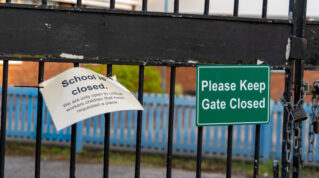The 2021-22 school year remains challenging for many schools that continue to face high levels of both student and teacher absences as well as, among other issues, invigilator shortages in the lead-up to exam season. As students sit these milestone exams for the first time in three years, recent Teacher Tapp research found only one in four teachers felt that it was back to business as usual.
A new academic year is on the horizon, and while we all hope it will be one without such disruption, now is a good time to reflect on the ongoing effects of the pandemic and how we can continue to address them. Recent research carried out by Renaissance and EPI for the DfE offers invaluable insight to enable teachers and school leaders to do just that.
The scale of losses
The research shows that pupils remain behind in their reading and mathematics skills, compared to their progress pre-pandemic. In the autumn term 2021-2022, secondary pupils had fallen a further 0.5 months behind in reading, bringing total average learning loss to 2.4 months behind by the end of the first half-term.
This differed at primary level, as learning losses for primary pupils in the 2021-2022 autumn term were largely unchanged since the 2020-2021 summer term. However, pupils remained around 0.8 months behind where they would be expected to be in a typical pre-pandemic year.
These learning losses are likely to continue to add pressure on teachers and school leaders as they struggle to ensure extra support is in place for those who need it most.
Most worryingly, the gap in progress between disadvantaged pupils and their peers widened between the summer and autumn terms in both primary and secondary reading. On average, disadvantaged secondary school pupils were a significant 3.5 months behind in the autumn term, compared to two months for non-disadvantaged pupils. That gap is 0.9 months in primary reading.
More positively, the gap has narrowed in primary maths. Disadvantaged primary school pupils were on average 2.2 months behind in maths in the autumn term, compared to 1.8 months for non-disadvantaged pupils – a gap of 0.4 months. Nevertheless, this gap must be addressed further, given that all of these losses come on top of the disadvantage gap that was already evident prior to the pandemic.
Regional disparities
Substantial disparities are also still apparent at a regional level. For example, learning loss is much more significant for pupils in the North and the Midlands (north-east, -1.3 months; north-west, -1.2 months; East Midlands, -1.0 months; and West Midlands, -0.9 months) compared to London and the south-west (-0.3 months).
The rates of recovery between the end of the last school year and beginning of the current year also vary considerably.
While the schools white paper contains some bold aims and a number of welcome measures including extra support for in-school mental health services and additional monitoring of children who are not in school, it remains a concern that these policies alone will not close the gap.
Research into practice
A number of useful free resources are available to schools to help them interpret the data and create a tailored action plan. This research allowed Renaissance to develop scaled score averages, which can be used as a benchmark to compare the scores achieved by specific cohorts against those achieved nationally. As well as overall averages, means are broken down by demographics from the national pupil database. These allow schools to benchmark against the national picture, not just at the start of this year but also prior to lockdowns.
Renaissance has also produced a guide to support with this process of understanding and applying the data in your classroom. And if the thought of creating tailored learning plans to address learning loss feels overwhelming, its Focus Skills workbooks are developed to support teachers in the effort.
Together, our research insights and support materials are designed to help schools navigate their way to a full recovery. And we hope they can do so without further disruption.
















Your thoughts